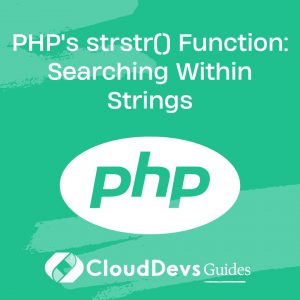What is a PHP framework, and which ones are popular?
A PHP framework is a pre-built, structured, and reusable foundation for web application development. It provides a set of libraries, tools, and conventions that simplify common web development tasks, enforces best practices, and promotes code organization. PHP frameworks expedite development by handling many routine tasks, allowing developers to focus on building unique features and functionality. Here are some popular PHP frameworks:
- Laravel:
– Laravel is one of the most popular PHP frameworks known for its elegant syntax and powerful features. It offers a wide range of tools for routing, authentication, database management, and more. Laravel’s Blade templating engine and Eloquent ORM simplify common tasks and make development efficient.
- Symfony:
– Symfony is a robust and highly flexible framework known for its modularity. It provides a comprehensive set of components and libraries for building web applications of any size. Symfony’s strong emphasis on reusability and configurability makes it a popular choice for large-scale projects.
- CodeIgniter:
– CodeIgniter is a lightweight and user-friendly framework known for its simplicity and speed. It’s ideal for small to medium-sized applications and offers excellent documentation. CodeIgniter follows the MVC pattern and is easy to learn for developers new to PHP frameworks.
- Yii:
– Yii is a high-performance framework designed for developing modern web applications. It’s known for its security features, such as input validation and output filtering. Yii is suitable for building web 2.0 applications and RESTful APIs.
- Zend Framework (Laminas):
– Zend Framework, now known as Laminas, is a collection of PHP packages that can be used individually or together to create web applications. It emphasizes object-oriented programming and follows best practices.
- Phalcon:
– Phalcon is a unique framework as it’s implemented as a C extension for PHP. This approach results in exceptional performance. Phalcon includes a variety of features and is particularly suitable for performance-critical applications.
Each of these PHP frameworks has its strengths and is suitable for different types of projects. The choice of framework depends on factors like project size, complexity, and developer familiarity. Ultimately, using a PHP framework can greatly streamline web development, improve code quality, and accelerate project delivery.







